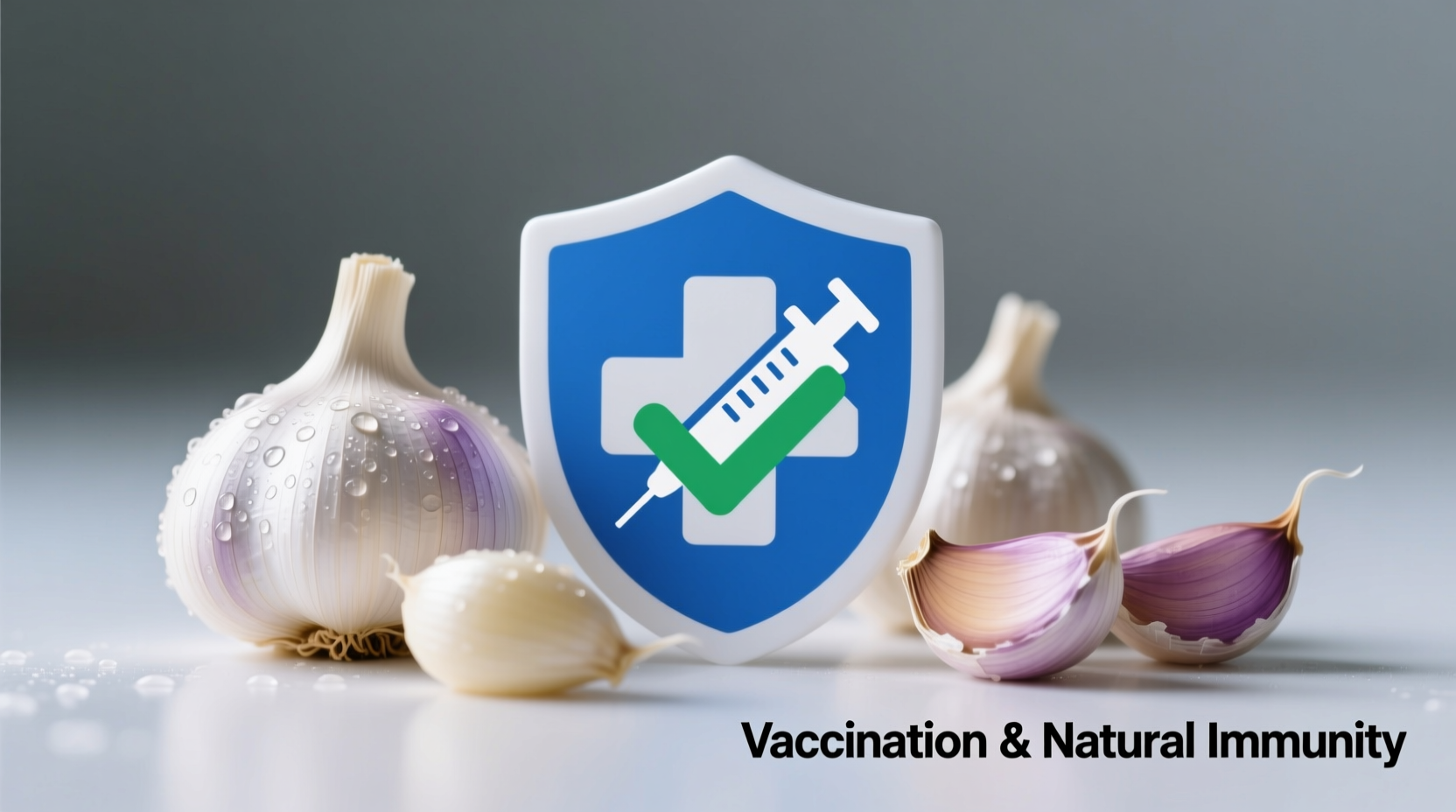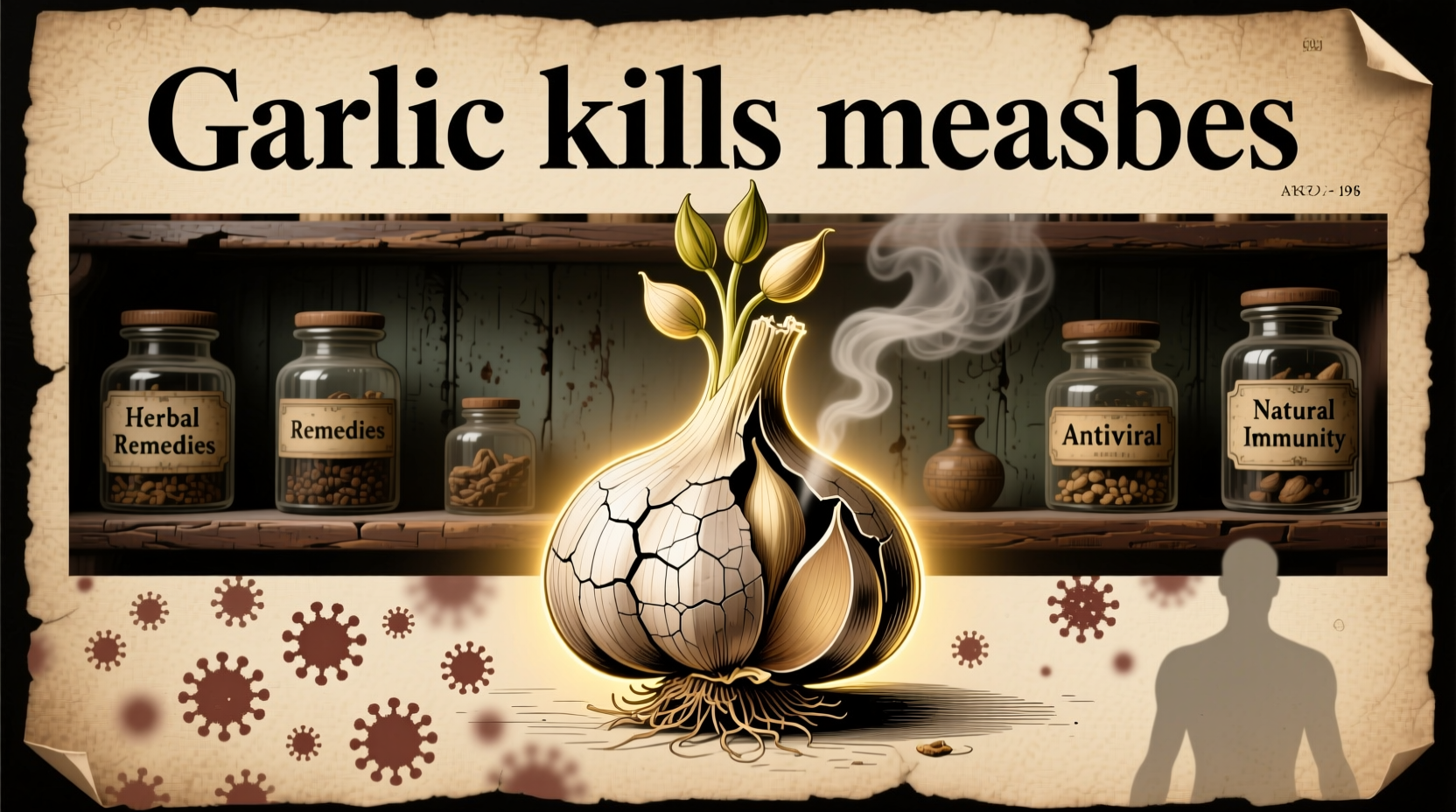When searching for natural remedies, it's crucial to distinguish between traditional beliefs and scientifically validated medical treatments. This article examines the relationship between garlic and measles with evidence-based information from medical authorities, helping you make informed health decisions for yourself and your family.
Understanding the Measles Virus and Effective Prevention
Measles is a highly contagious viral infection caused by the Measles morbillivirus. Unlike bacterial infections that might respond to certain natural compounds, viruses require different approaches for prevention and treatment. The CDC states that measles is so contagious that if one person has it, 90% of the people close to that person who aren't immune will also become infected.
The development of the measles vaccine represents one of public health's greatest achievements. According to the CDC's historical timeline, the first measles vaccine was licensed in 1963, and by 2000, measles was declared eliminated from the United States due to widespread vaccination programs. The current MMR (measles, mumps, rubella) vaccine is 97% effective after two doses.
| Aspect | Measles Virus | Garlic Compounds |
|---|---|---|
| Nature | RNA virus | Organosulfur compounds (allicin) |
| Transmission | Airborne droplets | N/A (consumed orally) |
| Proven Prevention | MMR vaccination (97% effective) | No prevention established |
| Medical Consensus | Vaccination is only effective prevention | May have mild antimicrobial properties but not antiviral against measles |
Garlic's Actual Health Properties: Separating Fact from Folklore
Garlic has been used in traditional medicine systems for centuries, and modern research has identified some legitimate health benefits. According to a comprehensive review published in the Journal of Nutrition, garlic demonstrates modest antimicrobial properties against certain bacteria and fungi. However, these effects are limited and do not extend to viral infections like measles.
The active compound in garlic, allicin, breaks down quickly when exposed to heat, stomach acid, or during digestion. This significantly limits any potential therapeutic effects. The National Center for Complementary and Integrative Health (NCCIH) states: "There's no strong evidence from clinical trials to date that garlic is effective for preventing or treating viral infections like the common cold, let alone more serious viral diseases like measles."

Why the Misconception Persists
The belief that garlic can cure serious illnesses often stems from conflating different types of infections. While garlic may have some effect against certain bacteria (like those causing minor skin infections), viruses operate differently. Measles is an RNA virus that replicates inside human cells, making it inaccessible to compounds like those in garlic.
During measles outbreaks, misinformation about natural cures tends to spread rapidly. The World Health Organization identifies this as part of the "infodemic" problem, where false health information spreads alongside disease outbreaks. In 2019, WHO listed vaccine hesitancy as one of the top ten global health threats, partly due to misinformation about disease prevention.
What Actually Works for Measles Prevention and Treatment
When it comes to measles, evidence-based medicine provides clear guidance:
- Prevention: The MMR vaccine remains the only proven method to prevent measles. Two doses provide 97% protection.
- Treatment: There is no specific antiviral treatment for measles. Medical care focuses on supportive treatment to address complications like dehydration, fever, and bacterial infections that may develop.
- Vulnerable populations: Infants, pregnant women, and immunocompromised individuals face higher risks of severe complications from measles.
The American Academy of Pediatrics emphasizes that vaccination not only protects individuals but also maintains herd immunity, which is crucial for protecting those who cannot be vaccinated for medical reasons. In communities with vaccination rates below 95%, measles can quickly spread among unvaccinated individuals.
Responsible Use of Natural Remedies
Natural remedies can complement conventional medicine in appropriate contexts, but they should never replace proven treatments for serious conditions. If you're interested in supporting your immune system:
- Maintain a balanced diet rich in fruits and vegetables
- Ensure adequate vitamin A intake (important for measles recovery)
- Get sufficient sleep and manage stress
- Consult healthcare providers before using supplements
For measles specifically, the WHO recommends high-dose vitamin A supplementation for children with measles in areas where vitamin A deficiency is common, but this is a specific medical intervention, not a general recommendation for garlic or other natural remedies.
When to Consult a Healthcare Professional
If you or a family member shows symptoms of measles (high fever, cough, runny nose, red/watery eyes, and a characteristic rash), contact a healthcare provider immediately. Early diagnosis and supportive care can reduce complications. Never rely on unproven remedies for serious infectious diseases.











 浙公网安备
33010002000092号
浙公网安备
33010002000092号 浙B2-20120091-4
浙B2-20120091-4